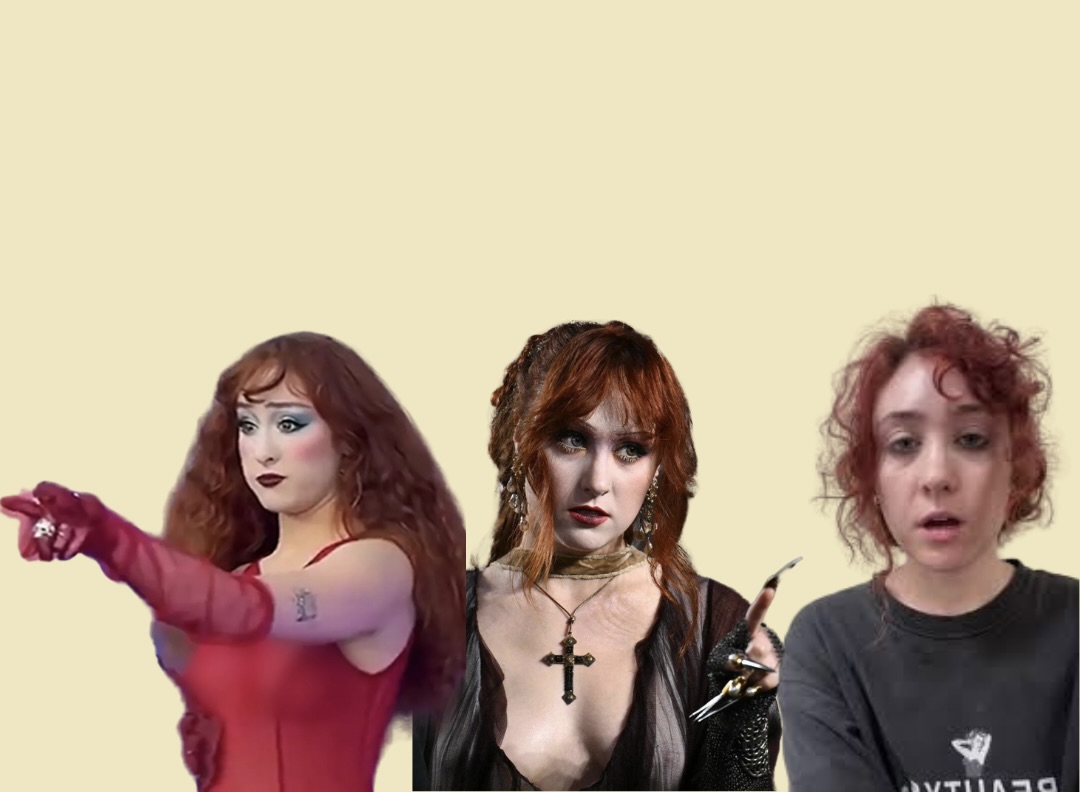In recent months, rising pop star Chappell Roan made headlines for calling out both paparazzi and invasive fan behavior, spotlighting a critical issue about boundaries and respect in modern celebrity culture. From clapping back at photographers on the red carpet, to posting heartfelt pleas on social media for her fans to stop crossing personal lines, Roan has boldly spoken out against the toxic entitlement of fans that often surrounds high-profile public figures.
After the 2024 MTV Video Music Awards, the internet was buzzing over Roan’s fiery confrontation with a paparazzi. While walking the red carpet, Roan was reportedly fixing her dress when a photographer told her to “shut the f**k up.” In an instant, she turned around and fired back, shouting, “You shut the f**k up,” followed by, “Not me, b***h.” This unfiltered response caught many off guard, as Roan had her back turned to the cameras before being verbally provoked. The exchange left some fans speculating that Roan may have been defending someone else who had been disrespected, as another photographer allegedly told someone to “shut the f**k up” moments before. Regardless of the specifics, this encounter highlights a larger issue in the media and popular culture: the blatant disregard for personal boundaries. This instance, of course, is not the first time that a celebrity has had contested relationships with the paparazzi. Stars like Lily Allen and Kanye West have famously clashed with photographers, with Allen throwing a water bottle at a photographer after being followed and West involved in a scuffle at Los Angeles National Airport in 2013 that led to a lawsuit. While such confrontations are not uncommon, Roan’s moment stands out. It was not just a reactive clash, but it unfolded at a public event where the expectation was that she would be photographed. In that moment, Roan did not just set a physical boundary, but she also established a clear line of respect. Posing, smiling and being photographed as a celebrity does not negate her right to be treated with respect. By responding with such provocative language and anger, Roan broke the illusion that celebrities are immune to frustration and human emotion.
Roan attended the premiere of Olivia Rodrigo’s “GUTS World Tour” documentary, where she again called attention to the mistreatment she has faced from paparazzi. During the red carpet event, Roan confronted a photographer whom she accused of being disrespectful to her at a previous Grammy Awards party. In a video circulating online, Roan can be heard demanding an apology from the photographer, saying, “You need to apologize to me” and “I deserve an apology for that.” Despite the photographer’s silence, Roan continued to assert herself until her handler intervened and tugged her away. The fact that Roan recognized and remembered the photographer from the past Grammy’s event and felt the need to confront him at another public event — despite being in the middle of being photographed — is a testament to how much those negative interactions impacted her. Her words were quite plain, candid and personal, breaking down the wall between her celebrity persona and her authentic self. This is so striking because Roan was able to humanize herself in a way that celebrities rarely get to express in such formal spaces. By insisting on an apology, she challenged the often unwritten rule that celebrities should tolerate invasive behavior or belittling treatment. Roan’s interactions with the paparazzi serve as a powerful reminder that celebrities are humans at the end of the day, and fame does not diminish a person’s humanity. Perhaps her approach can bring about a new era of accountability between celebrities and the media. Her stance is a refreshing shift, encouraging both fans and media professionals to rethink how we interact with those in the spotlight.
Despite the outpouring of support Roan received from fans after these incidents, there were many people who argued that this kind of treatment just “comes with the job,” and she would simply have to deal with it. However, with the advent of social media, celebrities are given a forum to speak for themselves and set their own boundaries. In an Instagram post, Roan addressed this head-on, rejecting the notion that her choice to be a performer means she owes access to anyone beyond the stage. She wrote, “When I’m on stage, when I’m performing… I am at work. Any other circumstance, I am not in work mode,” emphasizing that just because she’s in the public eye does not mean her personal space and autonomy are up for negotiation. She expressed gratitude for her fans and the love she has received as a performer, continuing that what she does not accept is “creepy people, being touched and being followed.” Clearly, her message is not about pushing people away or negating any of her support but rather about ensuring her interactions are safe and respectful. In the past, we have seen so many situations where celebrities get harassed by paparazzi or invasive fans and often do not think much of them. Of course, the job comes with many perks, like fame and fortune. Yet, it is important to ask ourselves: must someone sacrifice their privacy to share their art with others? If we can foster a community where celebrities are leveled down or seen as equals with others, a relationship can be established where not only are celebrities respected as humans. At the same time, celebrities too are expected to respect other humans. Through Roan’s actions and words, she has invited her audience to see celebrities as real people, creating a healthier, more balanced relationship between public figures and the fans and media who engage with them.
Laila Sayegh, FCRH ’27, is a political science major from Congers, N.Y.











































































































































































































